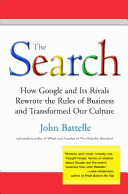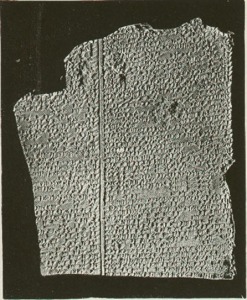You are currently browsing the tag archive for the ‘socialpulit’ tag.
Tag Archive
The Story of Google: Searching with Intent
March 10, 2009 in Society and Culture, Trends | Tags: Gazaro, Google Zeitgeist, John Battelle, Larry Page and Sergey Brin, narrative paradigm theory, Primal Fushion, socialpulit, The Search, walter r. fisher | Leave a comment

People share stories to preserve culture, to create order, to explain the universe, to teach societal values, and to entertain. The Narrative Paradigm Theory, proposed by Walter R. Fisher claims all communication is a form of storytelling and all people experience and interpret life as a series of stories. Each narration, with its own conflict, plot, intentions, characters, beginnings, middles, and ends, help us comprehend reality.
I admit, I’m a communication theory geek. My ears perk up when I read about language, society, identity construction, semiotics, and cultural narration. Don’t get me wrong, I have enjoyed learning about digital technologies and social media advances, but I have been waiting for the day where it all comes together and I have an AHA moment.
 This past week I read The Search. In a single breath, the book is about Google and the history and future of search technology (but it’s so much more). Right away, author John Battelle audaciously claims Google can tell us what our culture wants and answers any question we ask. Google solves the riddles of business, politics, pop-culture and just about anything. I asked myself…really? Have we entered the Google Age? I thought, Google is great for email, organizing my RSS feeds, and Google scholar allows me to bypass some complicated scholarly sites, but can a search engine really know what our culture wants? Until reading Battelle’s book, I hadn’t given much thought to Google as a cultural indicator or a “database of intentions.” I continued to read past the intro and then it happened…my AHA moment of sorts. Battelle talked about culture, storytelling, even semiotics…I was hooked. I was ready to learn the story of Google and how we as a society have entered…the age of SEARCH.
This past week I read The Search. In a single breath, the book is about Google and the history and future of search technology (but it’s so much more). Right away, author John Battelle audaciously claims Google can tell us what our culture wants and answers any question we ask. Google solves the riddles of business, politics, pop-culture and just about anything. I asked myself…really? Have we entered the Google Age? I thought, Google is great for email, organizing my RSS feeds, and Google scholar allows me to bypass some complicated scholarly sites, but can a search engine really know what our culture wants? Until reading Battelle’s book, I hadn’t given much thought to Google as a cultural indicator or a “database of intentions.” I continued to read past the intro and then it happened…my AHA moment of sorts. Battelle talked about culture, storytelling, even semiotics…I was hooked. I was ready to learn the story of Google and how we as a society have entered…the age of SEARCH.
Google has the story everyone wants to read – a small unorthodox company, led by two egomaniacal guys, fight over power and money (with sites like Ask and Yahoo!) and basically find a way to gather the world’s information, organize it and make it universally accessible. The story begins when Stanford students, Larry Page and Sergey Brin began dabbling with search technology in the 1990s. In the end, the nonconformist company, with a “Do No Evil” philosophy has become the premier search engine. Google has redefined business relationships, marketing, and philanthropy.
I believe two major players can help make sense of Google’s story – search and intent. Google offers the public, pure and organic search results. We type in a key word and search allows us to navigate through an infinite amount of resources and find some answers. Search can give us anything we want in the context of specific intent. And there is the magic word – intent, without it search results would be disconnected, impersonal, and perhaps irrelevant. Intent is the secret, the power, and the magic of Google search. We search with specific intent, it’s a means to an end. By typing a few words into the search engine we declare our desires and our questions. Basically, the web has become a place to hold and analyze the world’s intentions.
Search has become a mechanism to understand our world, our culture, and ourselves. Searching with intent is how we journey through knowledge. Now, we can see not only what people are looking for, but why. You can imagine the endless implications for marketing, business, and technology. The DEMO 09 conference discussed the future of intelligent web services. Although most of technologies like Primal Fusion and Gazaro are far from being ready for distribution, they display the emerging, more understanding future of web technology.

So here is my interpretation of the Google story: Google’s complex algorithms give the web its language, search queries and clickstreams come together and give the web its culture. Just like Ancient Mesopotamian tablets crystallized the story of Gilgamesh, and Gutenberg’s printing press immortalized our stories, Google and search allows us to hold language in our hands, read it and make sense of it.
A narrative thread refers to certain elements of a story that guide the reader to the center of action or conflict. The author will strategically thread each narrative together to create a powerful and meaningful story. Battelle’s The Search not only offers us an exhaustive history lesson about Google, it also tells us the story of Google – the story of the our “search” culture. With each search and with each clickstream we are creating mini-narratives when threaded together tell about our culture’s intentions. What does your narrative thread look like? How do your queries mirror global search trends? What do your clickstreams and Google searches say about your intentions? Does Google deliver useful answers? I would suspect, most of the time Google does, and if it doesn’t, don’t worry the guys at Google are working tirelessly to figure out your intentions.
And the story continues: see what Google should do in the future
Google Stockpiling Cash: Storing Nuts for Economic Winter or Just Plain Nuts?
6 companies Google should buy right now
and follow The Official Google Blog
